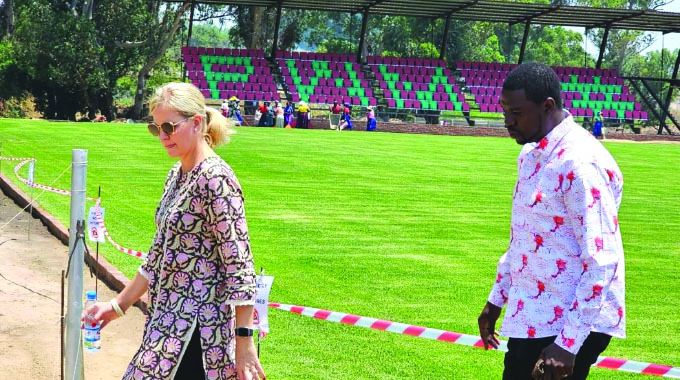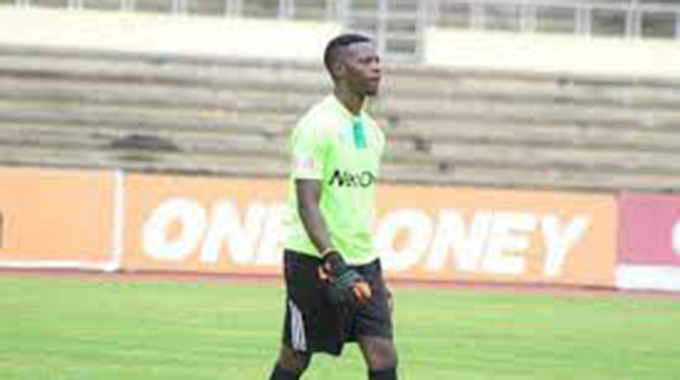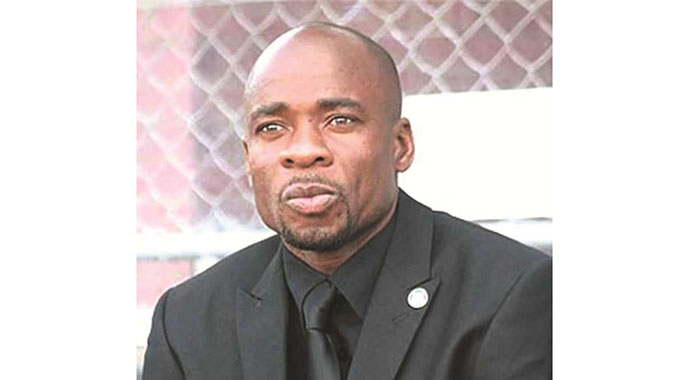Magaya And His Ace of Hearts

Sharuko On Saturday
IF we run a football quiz, asking fans what do they remember about 1963, when it comes to the beautiful game in this country, it’s likely we will provide us with the same answer.
They will probably tell us, without any hesitation, that it was the year Dynamos were born.
Others will even remind us that this year actually marks the 60th anniversary of that landmark chapter in our game.
The birth of the Glamour Boys, Chazunguza, Boys In Blue, DeMbare, Dinamo de Mbare, Haina Ngozi, Mabhinya, whatever you prefer to call them.
The club, which was made fashionable by George Shaya, and friends, at the tail end of the Swinging Sixties and the majority of the Sensational Seventies.
The team, which was made formidable by Moses Chunga, and friends, in the Electric Eighties.
The club which Sunday Chidzambwa transformed into a beast, with his exceptional coaching qualities, in the Nineties, including a kiss in heaven in ’98.
The club which Sam Dauya administered, at its formation in ’63, and which now is firmly under the control of Bernard Marriot, who is effectively its owner, even though others will argue it belongs to the people.
Marriot is the Last Man Standing, among those pioneers, and still looks very, very fit and appears like someone who could live, at least, another 10 years.
He is DeMbare’s version of Sir Geoff Hurst, the 81-year-old who is the only man still alive from the Three Lions who powered England to their only World Cup success story in ’66.
That was just three years after DeMbare’s formation.
Until last week, there were two of them, Hurst and Sir Bobby Charlton.
However, the Manchester United legend, who was diagnosed with dementia three years ago, died at home last week.
The irony of this English tale is that Hurst, the man whose superb hat-trick in the final was at the heart of their victory over the Germanys, is the Last Man Standing from that team.
Some will say God kept him long enough to see another footballer, Kylian Mbappe, finally match his record of scoring a hat-trick in a World Cup final when the Frenchman scored three against Argentina last December.
It’s a measure of how Dynamos keep casting a shadow on just about everything related to our football that their name will spring to mind if anyone asks about the events of ’63.
Oh, by the way, they even won the first of their record-breaking 21 league titles, in the same year.
But, something big, probably bigger than Dynamos, depending on how one ranks things, was also happening in domestic football in ’63.
The Gwanzura brothers – Eric and Fanuel – were also pursuing their remarkable dream of constructing a football stadium in their home neighbourhood of Highfield.
To understand how big this was one has to consider that this was a country where the black man was not considered to be someone who could pursue such dreams.
Not so long ago, the game itself had been divided along racial lines.
And, in all this, you had two black brothers pursuing a grand dream, of not only playing in the white men’s teams, but building a stadium for their community, which will leave a lasting legacy in local football.
Fanuel, who died in 1984, was a builder while Eric was a shrewd businessman.
Ten years ago, Eric died and was declared a national hero.
Before their arrest in 1964 for their political activities, the two brothers had found themselves cash-strapped, as the financial demands of their ambitious Gwanzura Stadium project drained their coffers.
They approached Fulton and Evans for a £1000 loan, which was granted, because the company’s directors had been charmed by the two brothers’ commitment to make a significant difference in their society.
But, when the two brothers were taken in detention, they had not repaid the loan and their project was attached by the authorities.
GWANZURA USED TO BE OUR THEATRE OF OUR DREAMS
But, not even jail could break their strong commitment to their project.
And, when Eric received a letter in jail from his wife advising him of the attachment of their stadium, he ordered her to sell one of his shops in Highfield to raise the money to repay the outstanding £350.
This was a hero who was prepared to lose everything, including his business investments, just to ensure that he realised his dream to build something significant for his community.
However, they were told the decision to attach the stadium was irreversible and it was sold to the Harare City Council for £650.
The city fathers, though, decided to honour the two brothers by naming the stadium after them and Eric later revealed they were later given £350 from the proceeds of the sale.
However, their prized asset was taken away from them.
But, no one can take away the contribution that the Gwanzura brothers made to domestic football, even though one gets the impression that it is not as valued as it should be.
The tragedy of our game is that it’s very likely that the majority of its fans today know more about Felton Kamambo, for all the chaos he inflicted on it, than both Eric and Fanuel Gwanzura.
It’s a game which has already started to forget Delma Lupepe despite all the great contributions he made to it, including playing a huge part in pushing it to embrace professionalism.
This is the man who, just twenty years ago, produced the first team, owned by an individual, to win the domestic league championship in 2003.
His Amazulu was as ambitious as it was professional and, at the turn of the millennium, they were one of the best clubs in the country.
But, listen to any conversation about football in this country and the names you will hear are all about the bad guys and little about the good guys like Lupepe, John Nyamasoka, Gijima Musindo, Ronnie Chihota, Joel Salifu, Joe Musenda, Lecture Mpange, Ginger Chinguwa and Forbes Chitava.
You won’t hear such names like Solomon Mugavazi, Eric Rosen, Cuthbert Chitima, Twine Phiri because our game has little room for the good guys who invested a fortune to keep it going.
It only has space for those who dragged it into a quagmire of negativity and these are its heroes, which probably explains why it cannot escape the shadow of Kamambo.
The other day, I wandered into a conversation the other day on Facebook in which a question had been asked — IS BENZA A LEGEND IN LOCAL FOOTBALL?
And, I asked myself, is this a fair question to ask about a man who has helped scores of footballers, who play for his club, a chance to earn a living, doing exactly what they want, all these years?
It’s one thing owning a Premier League team as a pet project and it’s another thing owning such a club in the top-flight league, owning another club in Division One and owning yet another club in Division Two.
And, when that ownership is extended to a number of women’s clubs, in various divisions, it’s a completely different ball game altogether.
When you also consider that this is the same guy who bankrolls all the transport requirements of the national teams, both men and women, whenever they are in camp, you get a very good idea that this isn’t Mickey Mouse stuff.
Yes, it’s fine for one to take a stand and oppose his continued appearance for his club Herentals in the Premiership.
It’s also fine for one to take a stand and support his continued appearance for Herentals as a good demonstration that a pursuit for a healthy living, which comes from the benefit of taking part in sporting activities, should not be limited by age.
But all that is immaterial when one considers his massive investment into our game and that is what creates legends.
THE HEART OF GOLD
I have seen a lot of this negativity when it comes to the stadium which Prophet Walter Magaya is building at his estate in Waterfalls.
You have a group of people who appear to have sworn to see the negative side as if the world we live in is only about darkness and never about the light that comes with the day.
If you listen to them, you would think that the world has only one season, winter, and never do we get the chance to enjoy the warmth of the summer and the sunshine that comes with it.
Magaya never promised us that he was building the next version of the Emirates or the African version of the London Stadium.
All that he promised us was that he was building a stadium because it’s a dream he has chased for some time now.
That was why he wanted to get into partnership with the Chitungwiza authorities so that he could lease and develop his hometown stadium, Chibuku.
They turned him down because, for some of the councillors, what was important wasn’t having a good stadium in their town but how much he should pay them to get their support.
Today, Chibuku looks like a ghost stadium, plucked from the Stone Age, back when football and rugby was still one game and using hands and feet was all part of the sport.
At some point, it was even turned into a car park.
That is also the reason he wanted to get into partnership with the Harare City Council to lease and develop Gwanzura.
Of course, just like in Chitungwiza, he didn’t get any joy to pursue his dreams.
It didn’t matter that this was a stadium the city authorities in Harare stole from the Gwanzura brothers.
So, against that background, Magaya decided to build his own stadium and that he is the first man to do that, since the Gwanzura brothers, is HUGE in itself.
Sixty full years have come and gone without any other individuals in this country going for such a grand project like building a football stadium.
No one had the vision, which the Gwanzura brothers had, to see the value in investing in the construction of a stadium from scratch.
Yes, we have had many individuals come in and pour some money into stadiums but this has largely been to try and upgrade existing facilities.
It’s the first time, in more than half a century, that we have seen a man building a stadium, from scratch, in this country.
That should be commended, rather than condemned, especially among us, given all the challenges we have been facing when it comes to stadiums.
To understand why this is special, one just needs to consider that our Big Three — Dynamos, Highlanders and CAPS United — have not built even a training ground all these years they have been around.
Bosso are 97 this year, Dynamos are 60 and CAPS United are 50.
If you combine all their years you get 207 years and in all those years, if it makes any mathematics sense, none of our Big Three ever had the vision of building their own stadium.
Now, a football-mad individual has done just that and whether it’s a one-seater stadium, who cares?
At least, he has built a stadium, complete with the bucket seats we haven’t seen at Rufaro, the National Sports Stadium and Barbourfields.
We can’t even talk about Gwanzura because everything has fallen apart at that stadium.
The Heart Stadium is what real legacy in sport is all about and just like the Gwanzura brothers, Magaya should not worry about voices of negativity.
He should understand that we are a community not used to seeing people invest in such things.
To God Be The Glory!
Peace to the GEPA Chief, the Big Fish, George Norton, Daily Service, Sitting Bull, Crazy Horse and all the Chakariboys still in the struggle.
Come on United!!!!!!!!!!!!!!!!!!!!!!!!!
Brunoooooooooooooooooooooooo!
Text Feedback 0772545199
WhatsApp 0772545199
Email – [email protected]
You can also interact with me on Twitter (@Chakariboy), Facebook, Instagram (sharukor) and Skype (sharuko58) and Game Plan is back and you can interact with me and my colleague CHARLES “CNN” MABIKA every Wednesday on ZTV.








Comments